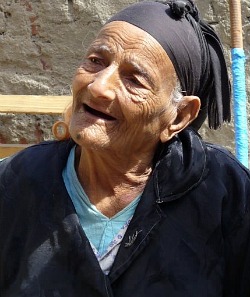 The Arab Republic of Egypt (or "Egypt" for short) is a country located at the Northeastern corner of Africa. Egypt borders the Mediterranean Sea in the north between Libya (to the west) and the Gaza Strip and Israel (to the northeast). Egypt also borders North Sudan in the south, the Red Sea to the east and south, and also includes the Asian Sinai Peninsula (situated between the Mediterranean Sea to the north and the Red Sea to the south, serving as a land bridge between Asia and Africa).
The Arab Republic of Egypt (or "Egypt" for short) is a country located at the Northeastern corner of Africa. Egypt borders the Mediterranean Sea in the north between Libya (to the west) and the Gaza Strip and Israel (to the northeast). Egypt also borders North Sudan in the south, the Red Sea to the east and south, and also includes the Asian Sinai Peninsula (situated between the Mediterranean Sea to the north and the Red Sea to the south, serving as a land bridge between Asia and Africa).
Egypt has a total land area of about 1,001,450 squared kilometers. About 6,000sqkm of Egypt's total surface area is covered by water with about 2,450km of coastline.
Egypt has an estimated population of 106 million people with the population growth rate hovering around 1.93%. This makes Egypt the third most populous country in Africa (following Nigeria and Ethiopia) and the most populous country in the Arabic-speaking world.
Almost half of Egypt's population (about 43.4%) lives in urban areas in major cities and towns such as Alexandria and Cairo the capital. The metropolitan area of Cairo is home to about 22 million people. Alexandria, Egypt's second largest city and former capital, has a metro area population of about 5.4 million people.
Although Egypt covers a vast area of land (1,001,450sq km), the greater part of its population lives near the banks of the Nile River in an area of just about 40,000 squared kilometers (or 15,000sq mi). This is because, the only arable land is found near the banks of the Nile River. This area (near the banks of the Nile River) is highly overpopulated compared to the desert (Sahara desert) areas which are only sparsely populated. The desert areas of Egypt experience periodic droughts, hot driving windstorms (especially in Spring), dust storms, sandstorms, frequent earthquakes, landslides, etc.
Because of the overpopulation in some areas near the banks of the Nile river, the few arable lands are being lost to urbanization. Also, the Nile, which is the only perennial water source in Egypt, is being overstrained due to the rapid population growth near its banks, putting much pressure on the available natural resources. The improper sewage disposals, agricultural and industrial runoffs/effluents, oil pollution, etc. continue to pollute the available water bodies. This is also severely affecting aquatic life in Egypt today.
Egypt has a literacy rate of 71.4% for the entire population with the female literacy rate hovering around 59.4%. In other words, about 71.4% of Egypt's total population above age 15 can at least read and write. On the other hand, just about 59.4% of Egypt's female population above age 15 can read and write.
Egypt has an HIV/AIDS adult prevalence rate of less than 0.1%. About 11,000 people were living with HIV/AIDS in 2009 with about 500 deaths recorded within the same year. Egypt is almost malaria-free. However, other deadly diseases such as Schistosomiasis (sleeping sickness), bacterial diarrhea, hepatitis A, Rift Valley and typhoid fever continue to destroy several lives in Egypt today.
Another major health problem facing Egypt today is Obesity. In 2006, more than 30% of Egyptian adults were overweight according to World Health Organization. Egypt is the 8th most Obese country in the world today. Meanwhile, about 6.8% of Egyptian children under the age 5 were underweight in 2008.
Poor leadership, corruption, unequal distribution of funds and lack of trust in the central government, are some of the major challenges facing Egypt today. Egyptians made their voices heard in 2011 through a peaceful revolution which resulted in the ouster of the then president, Hosni Mubarak, who had been in power for decades as both the head of state and head of government of Egypt.
Although Egypt has seen some great improvements in almost all sectors of its economy the past decade, there is a hidden poverty in Egypt today. It is poverty quite unknown to the outside world. The few in the upper classes control almost everything and often paint a picture that all is well in Egypt. Meanwhile, millions of people, especially women and children, continue to wallow in extreme poverty and hunger in some parts of Egypt today.
